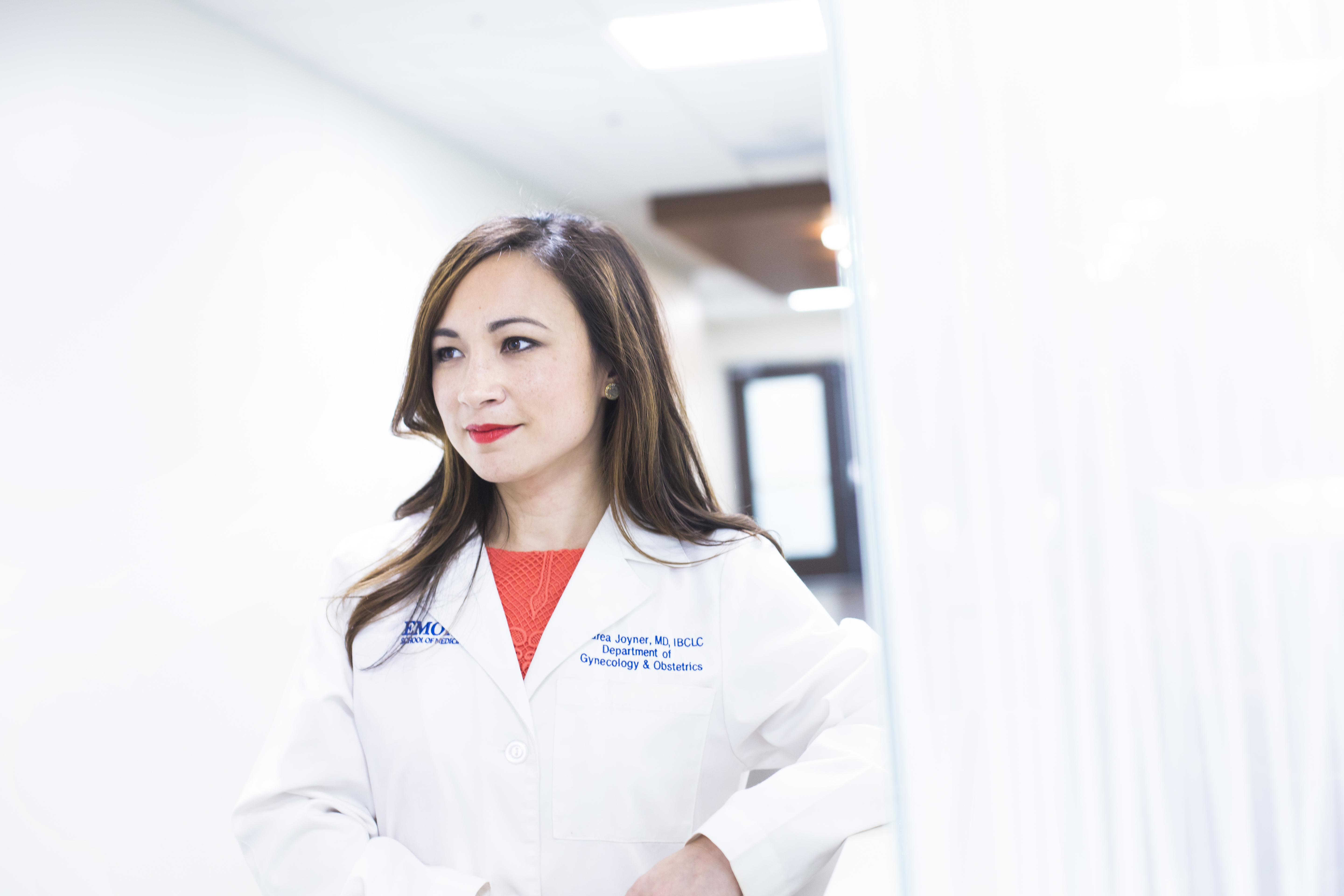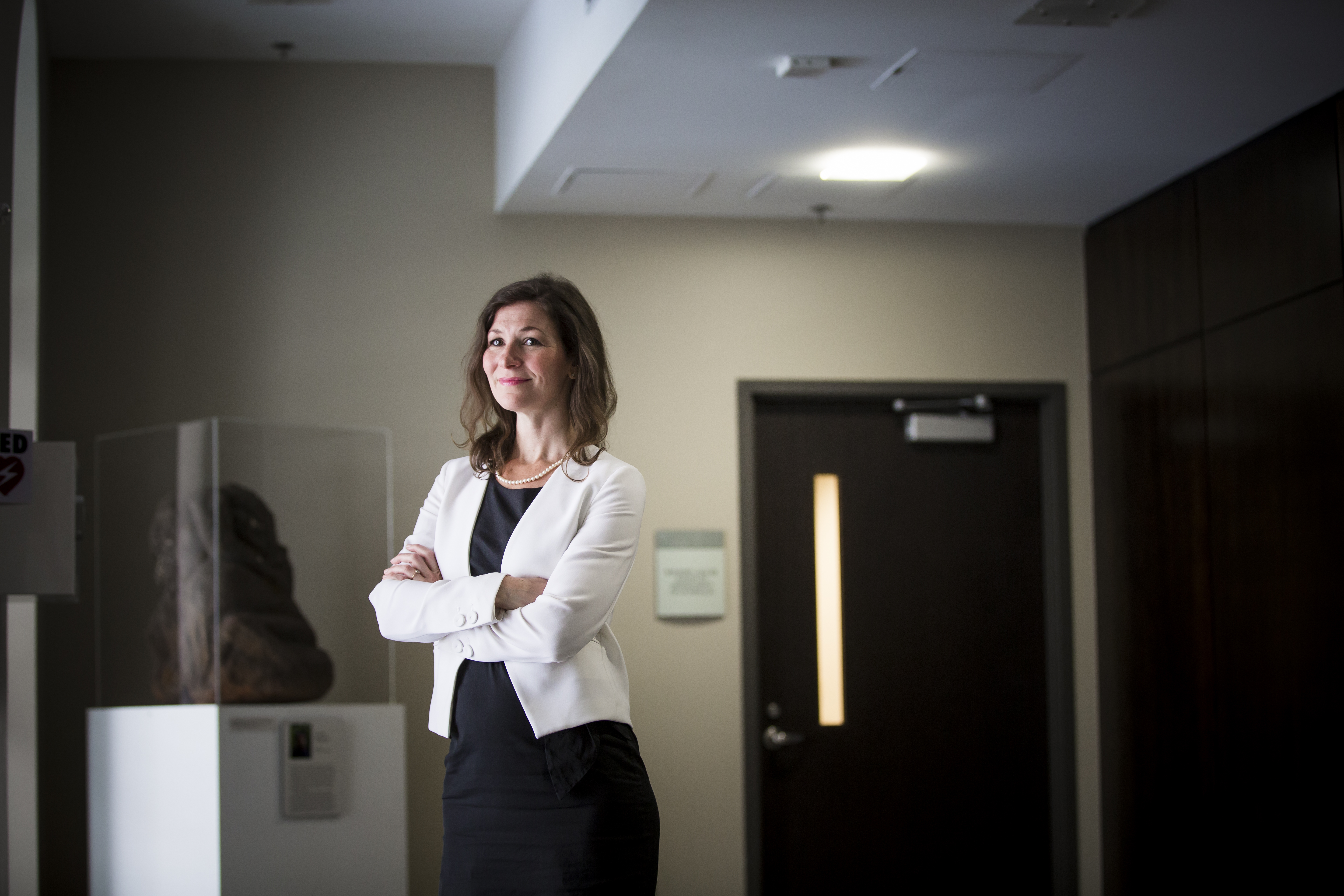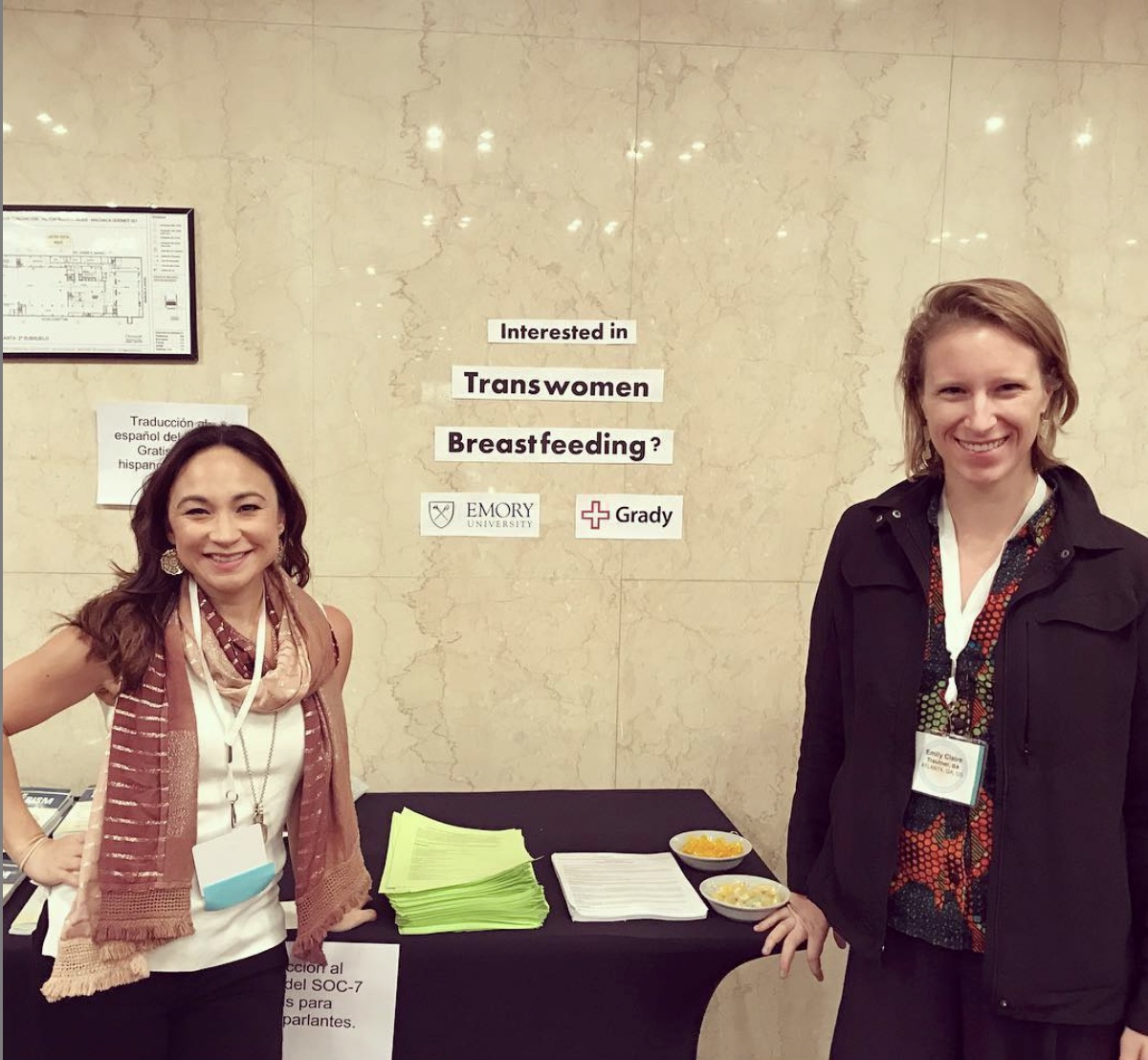Transwomen and Breastfeeding: Removing Barriers to Care
OUT OF THE SHADOWS AND PUSHING HEALTHCARE FURTHER

After a class on breastfeeding for third-year medical students, Emily Trautner a student of Andrea Joyner, MD, IBCLC at Emory University School of Medicine, pressed her about an interesting fact shared with the class.
“I told the med students that it was possible for a transgender woman to induce lactation,” Dr. Joyner says. “Emily thought that was fascinating and asked for more details.”
Emily’s curiosity led her to ask for more information about transwomen breastfeeding, “I knew a little bit about the process of gender transition, though I never considered that breastfeeding would be possible for transgender women after transitioning. Since many cisgender-women struggle to achieve good milk supply, it seemed like it would be a near-impossible task for a transgender woman. Thus, I was curious if it had been done before and how.”
When she went to look for the source she remembered, Dr. Joyner wasn’t able to find a reference paper.
“There wasn’t any research to prove that it is possible,” she explains. “What I was able to find was a blog post written by a transgender physician who was able to successfully breastfeed using a protocol created to induce lactation in adoptive mothers.
“No one had written anything up about inducing breastfeeding in transwomen,” Dr. Joyner continues. “So, I thought maybe we should.”
Helping a community in the shadows
A routine physical can be a traumatic and stressful experience for a transgender individual. Dr. Joyner immediately understood why research and literature weren’t readily available about breastfeeding in transwomen.
“For many years, and even today, the trans population lived in the shadows,” she explains. “We’re just trying to get them in for basic care and help them survive from one day to the next. Places like Grady’s Gender Clinic are here to create a supportive, respectful environment for transgender patients. It’s our job to ask these types of questions, knock down barriers, and push healthcare even further.”
Dr. Joyner quickly found a group of like-minded and passionate colleagues to dig into finding out more about transwomen and breastfeeding.
“I began asking around. I asked a family planning specialist and an endocrinologist to see if it would even be possible to induce breastfeeding,” she recalls. “It just opened a big can of worms.” So, Dr. Joyner and her medical student put their heads together and decided where to go from there.
Ultimately, they decided to take the question all the way to Buenos Aires and the World Professional Association for Transgender Health (WPATH). Emory was already planning to attend and present during the seminar, so the team decided to take advantage of the opportunity and survey providers. They hoped to learn what experience other providers had inducing breastfeeding, about standardizing care, and if a best practice guideline would be useful to the field.
“Healthcare providers are always thirsty for more knowledge,” Dr. Joyner says. “We heard from physicians who said – ‘oh yes, I had a patient that did that’ and we heard from practitioners who admitted they had never even thought about it.”
Dr. Joyner and her team returned to Emory, equipped with survey data they are just beginning to assess. Turning to one of her colleagues within the Department of Gynecology and Obstetrics, Dr. Joyner discussed her project with Assistant Professor, Department of Gynecology and Obstetrics, Division of Family Planning and Adolescent Reproductive Health Megan McCool-Myers, PhD, MPH. Dr. McCool-Myers recounts “[Dr. Joyner] didn’t have the means to disseminate those findings. And, considering that her time is primarily invested in clinical research, and I’m 100% research, I had the time, ability, and the opportunity, to advance what she was doing on the clinical front, put it out in academia, put it out in the peer-reviewed research, and push the research forward into a wider audience.”

"Should we be working off anecdotes, or should we be working off evidence? And clearly, when it comes to health, we should be working off of evidence."
Megan McCool-Myers, PhD, MPH
Dr. McCool-Myers was eager to support the research considering that lack of transgender evidence-based research is quite common. “It’s anecdotal, things are just reported on blogs, or in different patient reports, but there seems to be very little evidence-based research. There is this contrast of, “Should we be working off anecdotes, or should we be working off evidence?” And clearly, when it comes to health, we should be working off of evidence.”
Dr. McCool-Myers had the opportunity to evaluate the findings of the research “90% of the participants think there should be protocols about breastfeeding for transgender women, but yet they don’t really exist. This indicates that there is a need, there is a desire for having evidence-based approaches to this, and that this should be an opportunity to think about ways to perform research, and then again, to disseminate and get that research out.”
Dr. Joyner also has the same vision for the medical advancement of transwomen “I’d also like to work with transgender women to see if this is something that they are interested in,” she continues. “Understanding their needs and concerns will help shape our research and efforts.”
The protocol for inducing breastfeeding in adoptive mothers is a significant first step. However, more research and understanding is required to see how it might be adapted for transgender women.
“Many physicians aren’t even aware that the protocol exists for adoptive parents,” Dr. Joyner admits. “We need first to determine if it’s a best practice for transgender women, and how it would affect hormones they are already taking.”
Looking forward
Since the initial work at the World Professional Association for Transgender Health (WPATH), Dr. Joyner and her colleagues have seen encouraging steps forward. The abstract for this work was recently accepted for presentation at the 24th Annual International Meeting of the Academy of Breastfeeding Medicine taking place in October 2019.
Whatever the healthcare need, Dr. Joyner and her colleagues within Emory Gynecology and Obstetrics and the Grady Gender Clinic are committed to providing care with dignity and respect.
“Lactation may not seem like a very high priority, but it’s my job as a healthcare provider to make sure that any woman who want to breastfeed her child has the support and resources necessary to make it happen,” Dr. Joyner says.
Dr. McCool-Myers agrees, “The professions that were represented during data collection ranged anywhere from an endocrinologist to obstetricians/gynecologist, to therapists. This is evidence that there is a need for a broad range of care for our transgender populations. I applaud Dr. Joyner’s work, and that she’s trying to spearhead this at Emory, and putting us at the front of innovation.”
The curiosity that sparked Emily Trautner to push for more information after Dr. Joyner’s class has become a starting point for new and innovative approaches to transgender health.
“Transgender reproductive health and rights is and will continue to be a growing area of medicine as more people are able to transition to affirm their gender identity with growing societal acceptance. This specific focus on breastfeeding in transwomen starts to answer the larger question of how and if breastfeeding in transwomen can be safely achieved. Ultimately this research is about providing competent, high-quality care to transwomen and their families; we have a lot to learn in the medical profession to ensure that we are meeting this objective adequately.”
To learn more about Grady’s Gender Clinic, contact 404.616.1000.
Dr. Andrea Joyner MD, IBCLC (She/Her/Hers)
Assistant Professor, Department of Gynecology and Obstetrics, Gynecologic Specialties
Associate Medical Director for Nurse Midwifery Services
In addition to her work within Emory Department of Gynecology and Obstetrics, Dr. Andrea Joyner has actively participated in the Grady Transgender Working Group which subsequently has become a fully operational and multi-disciplinary clinic focused on the transgender community in Atlanta. Dr. Joyner continually seeks to educate others on the importance of this practice through department and international presentations. She helped create the Emory Department of Gynecology and Obstetrics Inclusivity Working Group and co-writes a recurring column on trans health in Ob.Gyn. News which publishes the work and continuing research that identifies gaps in reproductive health education for transgender patients.
Even More
The World Professional Association for Transgender Health (WPATH), formerly known as the (Harry Benjamin International Gender Dysphoria Association (HBIGDA), is a 501(c)(3) non-profit, interdisciplinary professional and educational organization devoted to transgender health. Professional, supporting, and student members engage in clinical and academic research to develop evidence-based medicine and strive to promote a high quality of care for transsexual, transgender, and gender-nonconforming individuals internationally.

The mission of WPATH is to promote evidence based care, education, research, advocacy, public policy, and respect in transgender health. As an international interdisciplinary, professional organization, the World Professional Association for Transgender Health (WPATH) works to further the understanding and treatment of gender dysphoria by professionals in medicine, psychology, law, social work, counseling, psychotherapy, family studies, sociology, anthropology, sexology, speech and voice therapy, and other related fields. WPATH sponsors a biennial scientific symposia and publishes the Standards of Care and Ethical Guidelines, which articulates a professional consensus about the psychiatric, psychological, medical, and surgical management of gender dysphoria and help professionals understand the parameters within which they may offer assistance to those with these conditions.




